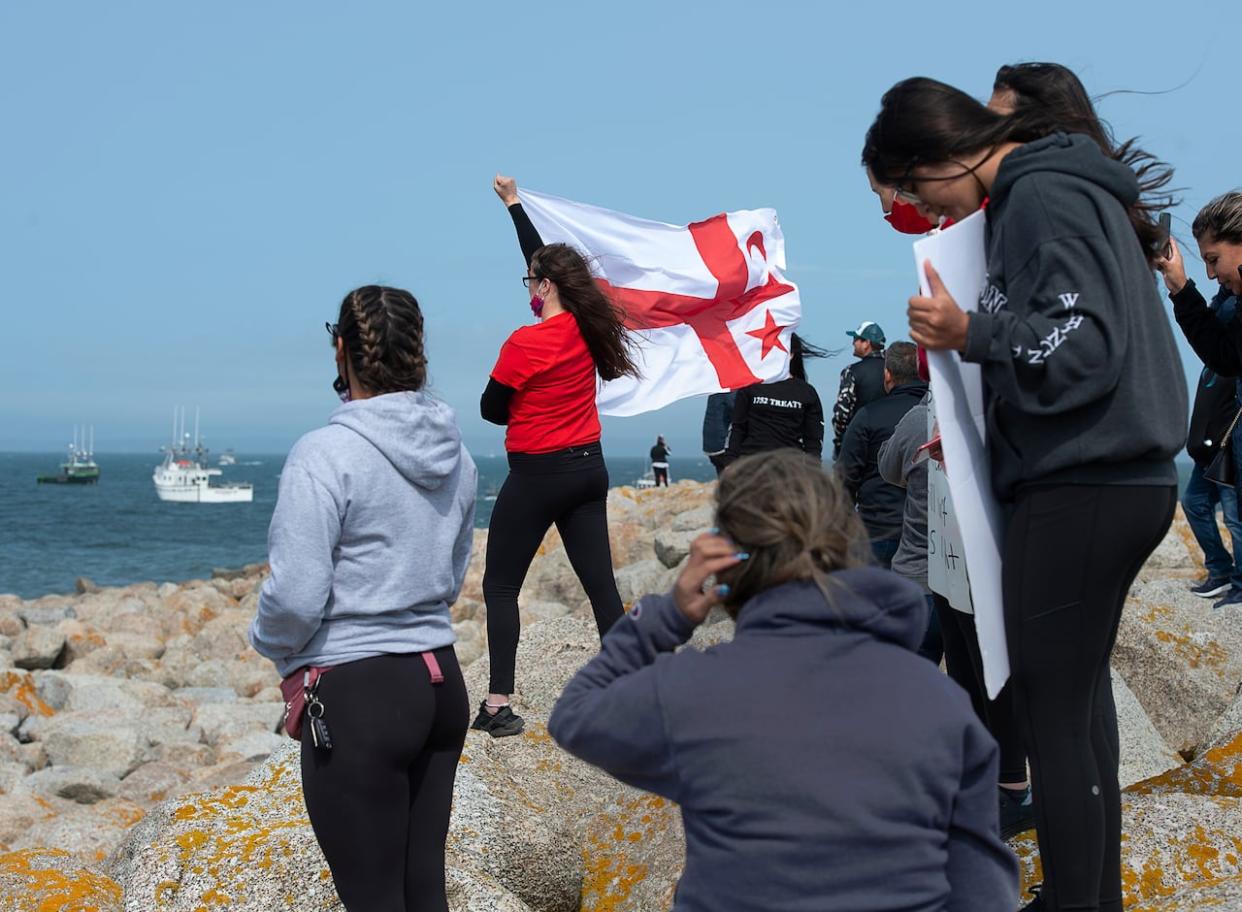Sipekne'katik First Nation, federal government to begin mediation in effort to settle fishing dispute

Litigation scheduled for next year that could have helped settle outstanding questions about treaty fishing rights related to the Marshall decisions will no longer happen, after a Nova Scotia Supreme Court judge granted a joint request from Sipekne'katik First Nation and the Attorney General of Canada to instead focus on mediation.
The decision stems from a lawsuit Sipekne'katik filed in 2021 that wanted a declaration from the court that the federal Fisheries Act and regulations infringe on the treaty right to fish lobster for a moderate livelihood. That includes the prohibition on catching and holding lobsters without a licence and fishing outside of a commercial season.
The trial was to start in May 2025, but this April, just as witness discovery was set to begin, the two parties served notice to the court that they'd reached an agreement to focus instead on mediation. They filed a joint request to have the trial dates and all other pretrial milestones adjourned.
During a hearing Wednesday, Pink Larkin lawyer Nathan Sutherland, acting for the band, said that although what will be discussed during mediation has yet to be agreed to and a mediator has only recently been settled upon, the two sides believe negotiations have a better chance of success if a trial is not looming in the background.
"It took the parties 10 months or so of discussion about the idea of mediation before we could say, 'Yes, we will mediate this and, yes, we're prepared to lay down arms for mediation,'" he told the court.
Outstanding questions
The issue of what constitutes a moderate livelihood has been at the heart of recent disputes on the French Shore in southwest Nova Scotia, as members of Sipekne'katik have fished in St. Mary's Bay outside of the commercial season.
They've protested interventions by DFO and there have been confrontations with members of the commercial industry who have voiced concern about what out-of-season fishing could mean for stock levels.
Although the Marshall decisions say First Nations fishers have a treaty right to fish for a moderate livelihood, what constitutes a moderate livelihood was not defined. The court also ruled that the federal government has the right to regulate based on conservation.
The Unified Fisheries Conservation Alliance, a group representing commercial fishing interests, had been granted intervener status in the matter and opposed the application by the Crown and Sipekne'katik.
Commercial group opposed application
Cox & Palmer lawyer Richard Norman argued Wednesday on behalf of the alliance that if mediation is to take place, it should be on a parallel track that does not disrupt the litigation process. Norman said keeping litigation on the table would serve as an incentive for the mediation process to address the issues at hand.
"There's no insight offered into the likelihood of success except that people are willing to talk," he told the court. "That's it."
Norman argued that the courts are the place to settle outstanding questions about moderate livelihood, but Sutherland disagreed. Even if there were a court decision, he said, it would likely be followed by years of appeals.
"It does not need to be addressed by the courts. As a matter of fact, it should be addressed by the parties."
In an oral decision on Thursday, Justice John Keith partially approved the request.
Request approved, with a deadline
He said case law "clearly confirms that a nation-to-nation resolution is better achieved through negotiations" and that "the broader goal of reconciliation is better achieved by way of agreement between the parties, not court order."
During the hearing Wednesday, Keith repeatedly questioned the lack of information about what would be covered during mediation and how much time the process would require.
Although he released the trial dates so the focus could be entirely on mediation, Keith gave the parties until Dec. 12 to complete that work.
"I'm prepared to provide the parties with time to mediate, but it must be done with the reasonable dispatch these issues deserve and that this litigation process is entitled to expect."
If an agreement has not been reached by December, Keith said proceeding with litigation would be reassessed.
MORE TOP STORIES

